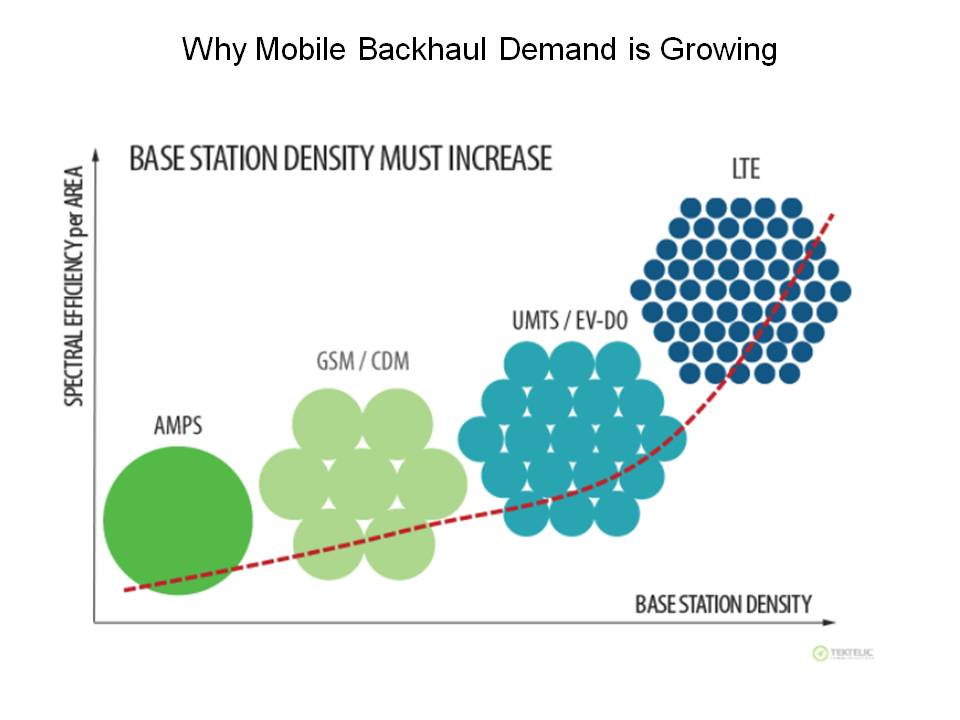There’s a very simple reason mobile backhaul demand is growing. By 2017, U.S. mobile data consumption will grow by 11 times the 2012 volume. The other issue is a change in network architecture. With each generation of mobile networks, the number of cells required to cover any area has grown.

That order of magnitude increase will create a market for consumer, enterprise and carrier small cells of about 21 million units, according to researchers at iGR.
What that could mean for mobile backhaul is fairly clear. The number of outdoor small cell backhaul connections deployed by service providers is forecast by Infonetics to grow more than 100-fold from 2012 to 2016, according to Infonetics Research.
So an order of magnitude increase in mobile bandwidth consumption will lead to two orders of magnitude growth of service provider small cell sites.
What already seems clear is that many of those sites will require wireless backhaul. Smaller, cheaper radios will be needed. But lower cost backhaul connections also will be crucial. In some cases that will mean using consumer grade or business grade digital subscriber line or cable modem connections.
In many other cases unlicensed or licensed radio spectrum will be the connections of choice.

